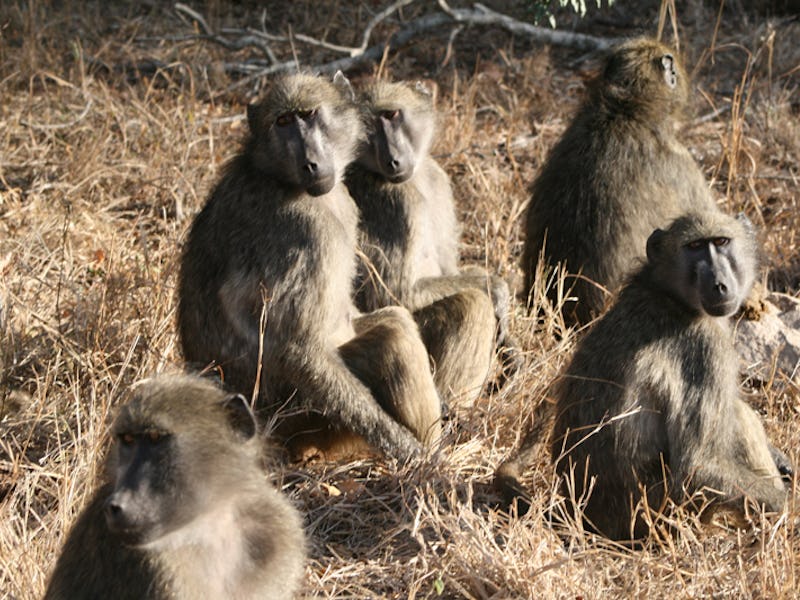New Baboon Study Finds Same Things as Facebook Survey Everyone Is Talking About
Apes do love to ape.

Inflatable butt sacs aside, baboon social networks are a lot like online social networks. After spending six years observing 100 wild Chacma Baboons, UK zoologist have concluded that groomers most frequently paired up with monkeys of similar age and disposition. The study, which is the talk of the primatological cocktail circuit, offers pretty much the same data, results, and conclusions as that 10,100,000-person Facebook study proving people are more apt to read news that they agree with. The social media news was used by many commentators (notably David Auerbach, who wrote about political polarization for Slate) as a jumping off point to talk internet sociology and political polarization. But that study, powerful news hook that it is, may prove to be little more than proof that apes generally act like apes.
Your newsfeed may simply be a grooming ritual - albeit with less emphasis on consuming lice.
“This happens in humans all the time; we hang out with people who have the same income, religion, education, etc,” said Alecia Carter, a University of Cambridge zoologist and an author of the study, in a press release that failed to go viral. “Essentially, it’s the same in baboons.”
Carter and her colleagues tracked the baboon’s age and social rank, as well as if monkeys were bold or shy. The researchers devised a sort of personality quiz for baboons by placing strange food (hardboiled eggs and bread dyed green or red) in the monkeys’ path — a bold baboon eats weird things, apparently, whereas shyer ones pass on Seussian snacks. Bold eaters groomed other bold eaters, and shy critters stuck together, the scientists reported in the Royal Society Open Science study.
The one remaining difference between humans and baboons: Baboons don’t take pictures of lice before eating them.